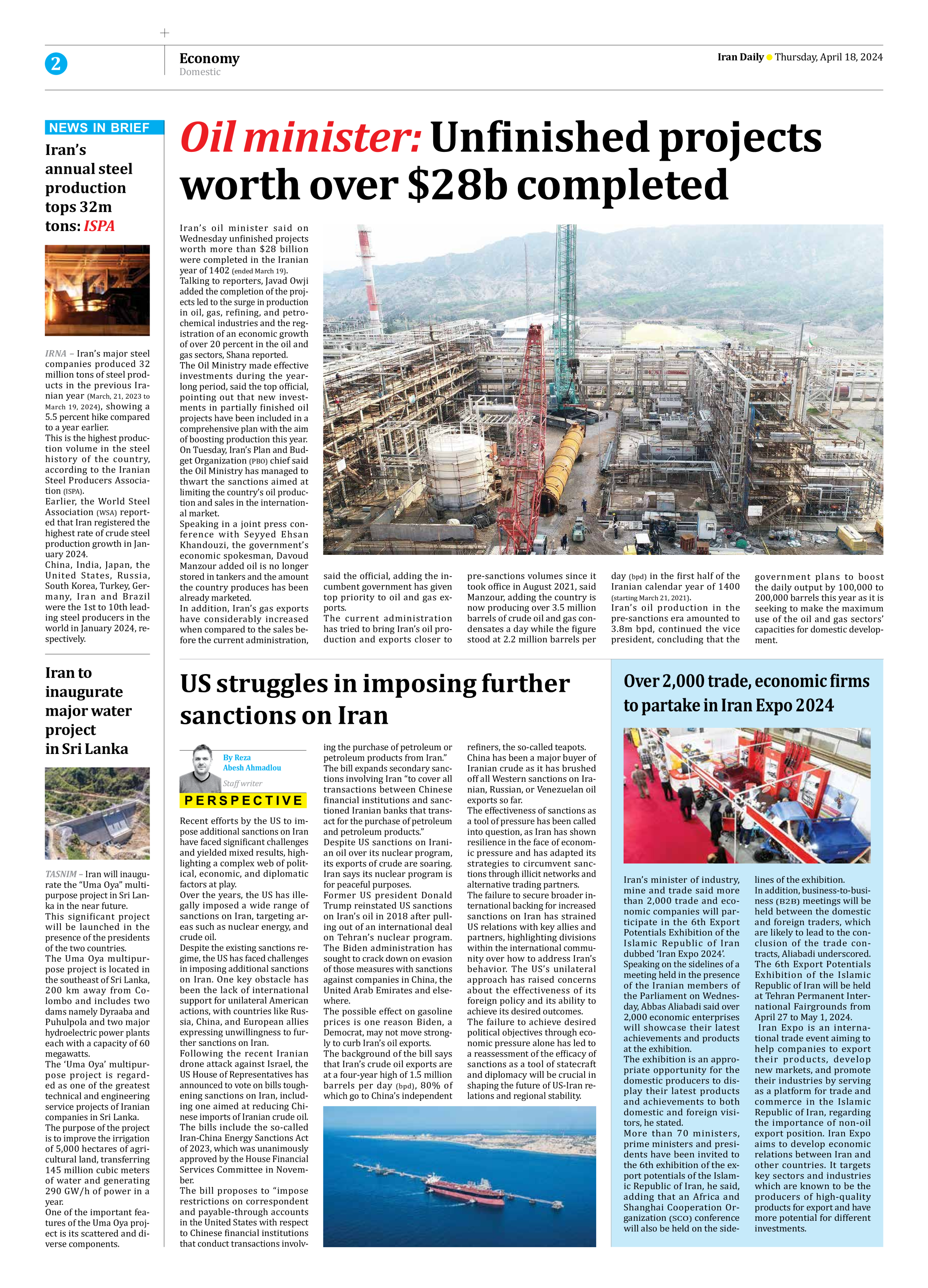
US struggles in imposing further sanctions on Iran
By Reza
Abesh Ahmadlou
Staff writer
Recent efforts by the US to impose additional sanctions on Iran have faced significant challenges and yielded mixed results, highlighting a complex web of political, economic, and diplomatic factors at play.
Over the years, the US has illegally imposed a wide range of sanctions on Iran, targeting areas such as nuclear energy, and crude oil.
Despite the existing sanctions regime, the US has faced challenges in imposing additional sanctions on Iran. One key obstacle has been the lack of international support for unilateral American actions, with countries like Russia, China, and European allies expressing unwillingness to further sanctions on Iran.
Following the recent Iranian drone attack against Israel, the US House of Representatives has announced to vote on bills toughening sanctions on Iran, including one aimed at reducing Chinese imports of Iranian crude oil.
The bills include the so-called Iran-China Energy Sanctions Act of 2023, which was unanimously approved by the House Financial Services Committee in November.
The bill proposes to “impose restrictions on correspondent and payable-through accounts in the United States with respect to Chinese financial institutions that conduct transactions involving the purchase of petroleum or petroleum products from Iran.”
The bill expands secondary sanctions involving Iran “to cover all transactions between Chinese financial institutions and sanctioned Iranian banks that transact for the purchase of petroleum and petroleum products.”
Despite US sanctions on Iranian oil over its nuclear program, its exports of crude are soaring. Iran says its nuclear program is for peaceful purposes.
Former US president Donald Trump reinstated US sanctions on Iran’s oil in 2018 after pulling out of an international deal on Tehran’s nuclear program. The Biden administration has sought to crack down on evasion of those measures with sanctions against companies in China, the United Arab Emirates and elsewhere.
The possible effect on gasoline prices is one reason Biden, a Democrat, may not move strongly to curb Iran’s oil exports.
The background of the bill says that Iran’s crude oil exports are at a four-year high of 1.5 million barrels per day (bpd), 80% of which go to China’s independent refiners, the so-called teapots.
China has been a major buyer of Iranian crude as it has brushed off all Western sanctions on Iranian, Russian, or Venezuelan oil exports so far.
The effectiveness of sanctions as a tool of pressure has been called into question, as Iran has shown resilience in the face of economic pressure and has adapted its strategies to circumvent sanctions through illicit networks and alternative trading partners.
The failure to secure broader international backing for increased sanctions on Iran has strained US relations with key allies and partners, highlighting divisions within the international community over how to address Iran’s behavior. The US’s unilateral approach has raised concerns about the effectiveness of its foreign policy and its ability to achieve its desired outcomes.
The failure to achieve desired political objectives through economic pressure alone has led to a reassessment of the efficacy of sanctions as a tool of statecraft and diplomacy will be crucial in shaping the future of US-Iran relations and regional stability.







